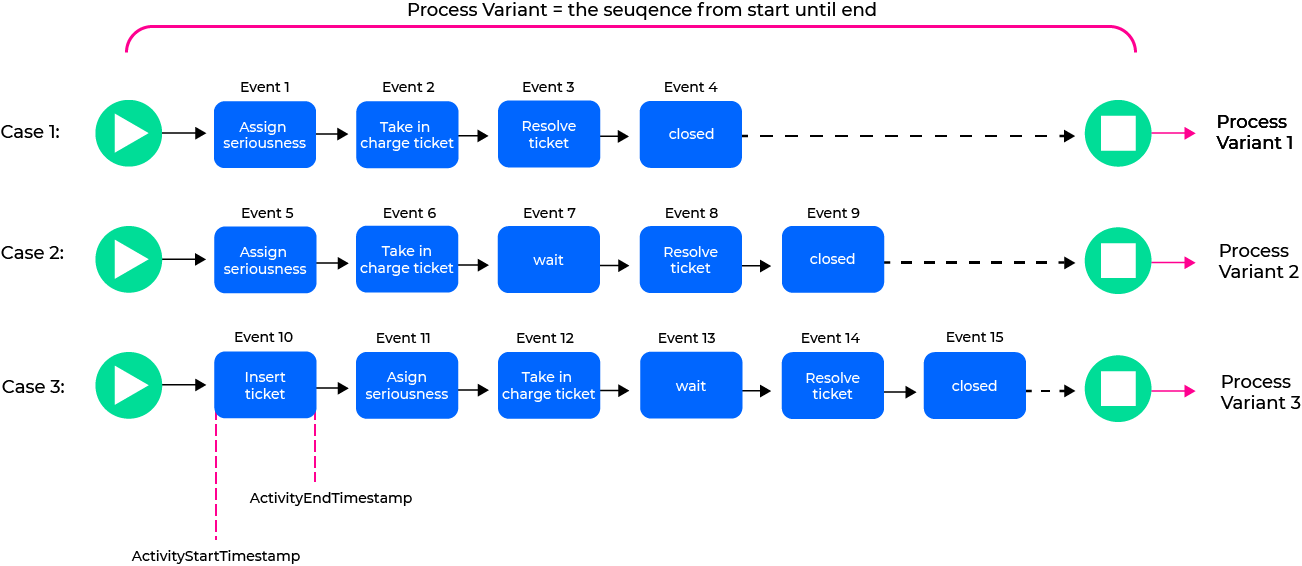Process vs Case - Event vs Activity
A simple example is a ticket process.
- The process is the general idea of going through the process with a defined model of optimal behavior.
- A case is one instance of going through the process. A case may follow the process model's steps exactly or could deviate from the model in any number of ways, for example:
- skipped steps
- extra steps
- repeated steps
- steps in different order
- process stopped/cancelled part way through

Our ticket process is made of a series of steps, called activities.
- The activities in our process include "Insert ticket", "Assign seriousness", "Take in charge ticket", "Wait", "Resolve Ticket", and "Closed".
An event is an activity related to a specific case and has a specific timestamp. "Resolve ticket" is an activity in our process, but it has occurred three times in three different cases, so it forms three distinct events.
-
An individual event can have attributes that describe the context of its occurrence, e.g. start and end timestamps, a specific EventID, a resource (user or machine that executed the activity), the event costs, etc.
-
Cases can also have specific attributes, e.g. the ticket type, the customer, the product, the workgroup, and so on.
Usually a case will have some unique identifying number, maybe the invoice number or ticket number. But you can sometimes have a process with no unique number to choose as the CaseID. This happens, for example, when in an Order to Cash process either an invoice number, a delivery bill or the sales order number can be used as CaseID. In such a situation, the use of Object Centric Process Mining can be helpful. More information about this can be found in this section: Traditional and Object-Centric Process Mining.